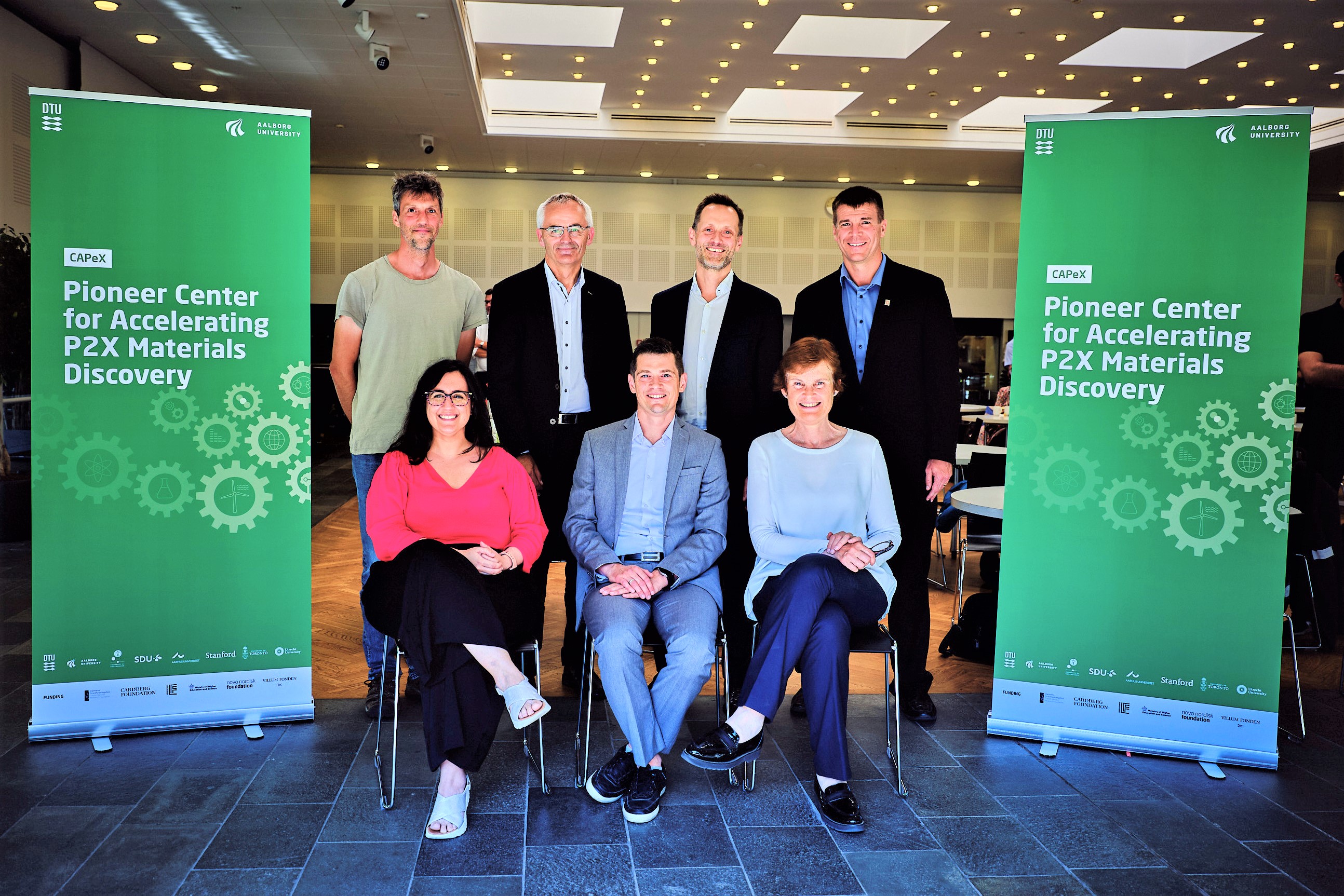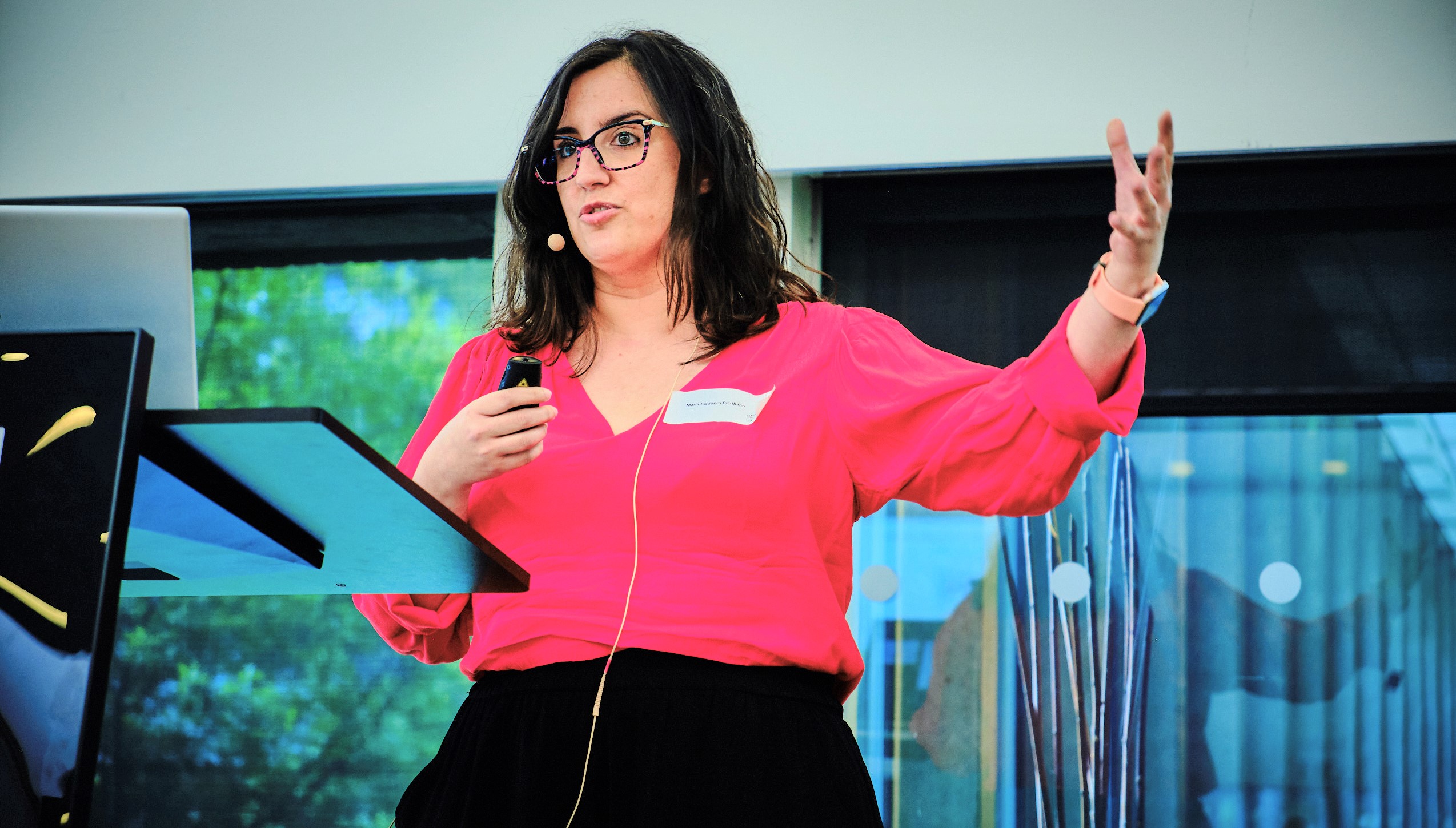Thursday, 07 September 2023
CAPeX centre for Power-to-X technologies launched, with Prof. Maria Escudero Escribano as one of the research leaders
The scientific opening event of the pioneer centre CAPeX took place on June 28 at the Technical University of Denmark. It will drive the development of new materials and technologies for the conversion of renewable energy into green synthetic fuels and chemicals. Prof. Maria Escudero Escribano, group leader at the ICN2, is one of the experts guiding this endeavour.

A new frontier in scientific research was unveiled on the 28th of June with the scientific opening of the Danish Pioneer Center for Accelerating P2X Materials Discovery, known as CAPeX. P2X, short for Power-to-X, is the complex of technologies for converting renewable energy into carbon-neutral synthetic fuels –such as hydrogen, synthetic natural gas, liquid fuels— or useful chemicals, with the primary objective of reducing our dependence on fossil fuels.
The launch of CAPeX marks a significant milestone in the quest to accelerate the green transition and revolutionize the development of materials and technologies for Power-to-X applications. Current and future collaborators, supporters, and researchers gathered for the inauguration event, where the centre's seven research leaders —Prof. Tejs Vegge (DTU, leader of CAPeX), Prof. Frede Blaabjerg (AUU), Prof. Jakob Kibsgaard (DTU), Prof. MSO Søren Højgaard Jensen (AUU), Prof. Brian Seger (DTU), Prof. Maria Escudero-Escribano (ICN2), and Prof. Anne S. Meyer (DTU)— took the stage to present the project's research lines and application areas.
Prof. Maria Escudero-Escribano, leader of the ICN2 NanoElectrocatalysis and Sustainable Chemistry Group since late 2022, is in charge of the project work package on ‘Sustainable Commodity and Specialty Chemicals’. She will lead the team working on the development of more sustainable processes to produce chemicals, relying on safe, cheap, and environmentally friendly materials and electrochemical processes, and using more abundant reactants.
The visionary CAPeX centre has been made possible thanks to a substantial grant of 40 million euros from the Danish Ministry of Higher Education and Science, the Danish National Research Foundation, the Carlsberg Foundation, the Lundbeck Foundation, the Novo Nordisk Foundation, and VILLUM FONDEN. CAPeX brings together leading experts and competences from various Danish universities, as well as three international consortia. The centre is managed through a partnership between the Technical University of Denmark (DTU) and Aalborg University (AAU) and finds its home within the innovative 'Climate Challenge Laboratory' at DTU. The University of Copenhagen, Aarhus University, and the University of Southern Denmark are also active participants, alongside international partners from Stanford University, Utrecht University, and the University of Toronto.
The centre’s primary mission revolves around the development of efficient and robust materials that can convert water and CO2 into sustainable fuels and chemicals using the green power harnessed from wind turbines and solar cells. One of the core challenges CAPeX will tackle is the development of sustainable catalysts for electrolysis, eliminating the reliance on rare minerals and earth elements. Researchers aim to create scalable catalysts that can be globally adopted, pushing the transition to sustainable transportation solutions, and meeting crucial UN climate goals.
Over the course of the project, CAPeX will expand its platform to encompass other lines of research for the development of new materials and Power-to-X technologies, such as the utilization of wind turbine-generated green power to create sustainable chemicals, plastics, medicines, and even proteins for food. It is expected to play a crucial role in accelerating the green transition, pioneering revolutionary materials, and driving the world closer to a sustainable future.


